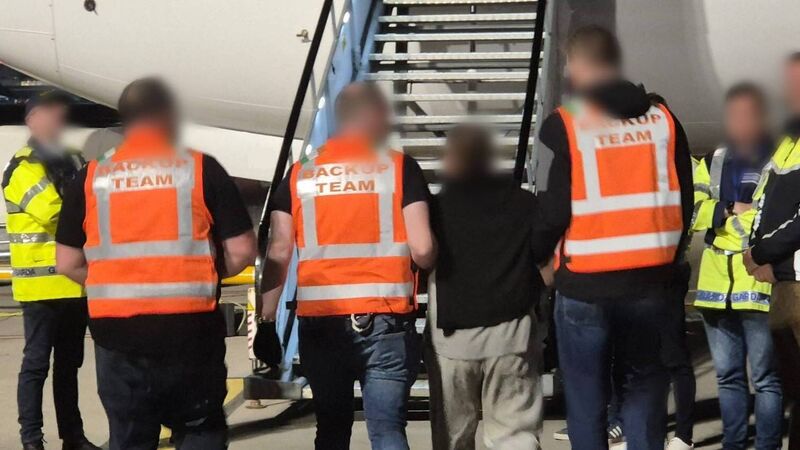Thirty nine people deported to Georgia, including women and children

The Garda National Immigration Bureau said 30 men, four women and five children were deported from Ireland. The children removed are all part of family groups. Picture: Gardaí
Thirty nine people, including women and children, have been deported to Georgia, the justice minister has said.
Jim O'Callaghan said deportation orders were enforced against 39 people, who have been removed from Ireland by charter flight.













